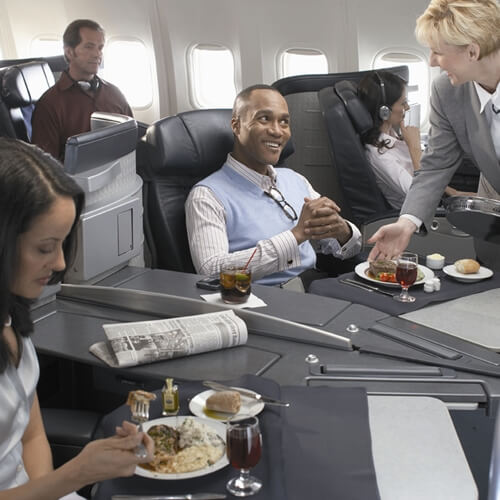Why does airline food taste bad?
Airline food has a reputation for being pretty bad. According to recent research, the reasons for those bland, odd-tasting meals might have more to do with environment than ingredients.
Precooked recipes
The first cause may be pretty predictable. Food served on planes is not traditionally cooked in the air. If you're eating a warm meal on an airplane, it's probably been reheated.
Condé Nast Traveler magazine explained how airline food is prepared in a catering kitchen on the ground beforehand, then chilled for storage. It is kept in a cool container, sometimes for quite a while, and warmed before being served on the plane. The article suggested food chilled and reheated in this manner will almost always be tough and dry.
Altitude
Even if the food was prepared onboard by a top notch culinary academy graduate, it still might not taste very good while in flight.
The BBC shared the results of a study conducted by Germany's Fraunhofer Institute for Building Physics that found our sense of taste is altered at 30,000 feet. The study found the cabin pressure and dryness while in flight creates an environment that stifles certain flavors. It is estimated our ability to taste sweet or salty sensations is reduced by about 30 percent while flying on an airplane.
These conditions, however, do not seem to affect the study participant's ability to taste spicy, sour and bitter. Still, having two of your major taste receptors muted can account for an airline meal's bizarre taste.
Smell
The Daily Mail reported the dry environment could also hinder our ability to detect flavor. Our sense of smell greatly influences our ability to taste and enjoy food. A lack of humidity can dry out the smell receptors in your nose and make the food taste even blander. It can be like your trying to eat food with a bad cold.
Noise from the engines
In a recent study, it also was discovered the roar of the engines could prevent you from enjoying your dish.
A study by Cornell university asked participants to sample meals in silence and then try the same food while wearing headphones that simulated the noise of being on an airplane. Cornell found the jet engine noise prevented participants from being able to taste sweet flavors.
Even more interesting, the sound seemed to increase sensitivity to other flavors. The study indicated the environment actually improved the ability to taste umami flavors, like those provided by tomatoes and certain cheeses. So the next time you fly, you might be better off just ordering a tomato juice.


